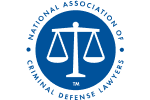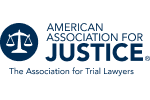Defense Lawyers
Fear
People react to fear, not love. They don’t teach that in Sunday school, but is true.
– Richard Nixon
Fear is the enemy of love.
– St Augustine of Hippo
Fear is the lock and laughter the key to your heart.
– Stephen Stills
Fear can do many things: Fear can drive people. Fear can motivate people. Fear often beguiles trust. Fear can alienate us. Fear can take away joy. Fear can inhibit growth of a person. Fear in the right context may help a person learn and grow all the more. For example, a person on a journey can be afraid to take an unknown or unfamiliar path. There may be a fear of the unknown. There may be practical fears, too, that train the person’s mind to be wary of dangers. There may be also a fear that exceeds practicality but simply is a fear of what that unknown path might lead to. The fear is not directed to the path itself but to the unknown surrounding it. If, however, that person overcomes his fear, he can be changed by the adventure he takes, the novel experiences, and new beauty he may encounter. As the poet Robert Frost once wrote, “Two roads diverged in a wood and I— I took the road less traveled by, And that has made all the difference.”
Fear takes many forms. Perfectionism can be a form of fear. The expectation of perfection for imperfect human beings is an expectation that is doomed for failure. Perfectionism is often a projection people make to disguise fear: fear of failure, disappointment, consequence, misfortune, authority, rejection, fear of self, sadness, depression, or anger.
Fear can be positive or negative in specific contexts as well: Fear can be a positive force or a negative force when a person is charged with a crime. Fear can be negative if it demoralizes you, and if you allow uncertainty to define you. If you have been charged with a crime, this does not have to define you. Fear is a reaction to external forces. Your attitude determines your response.
Fear can affect the outcome of a criminal case at every stage of the prosecution. Fear plays a role when you are arrested, indicted, during discovery, during plea negotiations, or trial. Fear, in the sense of a person appreciating severe consequences, can be a positive force in the context of being charged with a crime. Fear can be negative when it comes in the form of intimidation. Intimidation can be tied to fear when persons, sometimes even persons representing the government, or other persons or entities who are connected to a case, may try to use fear to effect a certain outcome, or make you do something you do not want to do. This is a negative type of fear. Two key stages of prosecution are addressed below:
Arrest
Fear can play a key role at the time of arrest. Fear may be a factor when law enforcement put you under arrest and ask you questions. Fear can be positive if it helps you respect the law, but you should not feel pressured or filled with fear if you do not answer questions the way you think an officer may want you to answer. At the time of arrest, you have the right to “invoke” your right to counsel. You should not have “fear” in this sense, but you have the right to ask for an attorney to advise you of your rights before you speak to law enforcement officers.
Fear can also lead to fake confessions when you confront a judgmental investigator.
Plea Negotiations and Trial
Other than at arrest, these are perhaps the most critical stages of the criminal prosecution. It is critical at these times to have the right lawyer. At these stages, a person may be afraid of the government for fear of what will happen if a person does not make a certain plea under a certain set of circumstances. A person may be afraid to “take the stand” and tell their story to a jury. It is vital to have right attorney investigate your case and all your defenses, and to be able to advise you as to your rights and assist you in making extremely important decisions which may have a tremendous impact on your life and the lives of your loved ones.
The founding fathers of our country, having escaped the intimidating and tyrannical English government, wrote the Constitution of the United States of America. The Constitution grants you certain rights in the context of a criminal prosecution. These rights are your shield against negative fears. The Constitution protects your right to a fair trial, your right to a speedy trial, your right to be free from illegal search and seizure, your right to be free from cruel and unusual punishment, and other rights. The “bridge” between you and the Constitution is your lawyer. Your lawyer’s job is to wield the constitution on your behalf to protect your rights, to help guide you in times of uncertainty in the context of being charged with a crime. You do not have to let a negative type of fear control you in the context of a criminal prosecution. The solution to fear lies in recognizing that fear is your reaction to outside forces. How you react is your choice. Changing your attitude can change your perception and impact the outcome.
Fear can be tempered by a guide, one who can help you on your journey. The key is to have an advocate, an experienced guide through the often confusing and intimidating aspects of being charged with a crime. This advocate’s job is to protect your rights. It is vital that you pick the right advocate and lawyer to protect your rights.
What are you Afraid of?
Call Albert R. Jordan IV of Healy & Jordan, PLLC today. We are located at 1323 28th Ave #A, Gulfport, MS, 39501. Our telephone number is 228.863.0123.







